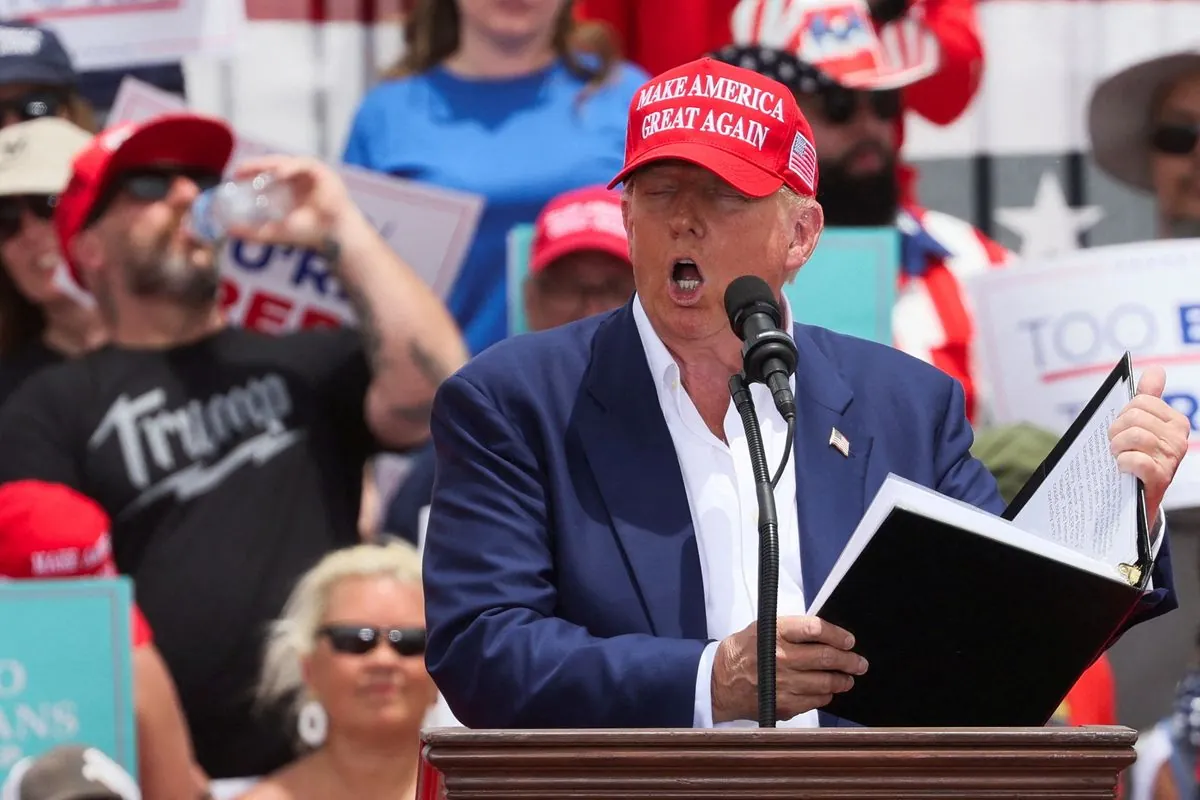As the 2024 U.S. presidential election draws near, Donald Trump's legal and political landscapes have undergone significant changes. The former president, who faced over 90 criminal charges across four jurisdictions earlier this year, has seen a substantial reduction in his legal challenges while simultaneously securing the Republican nomination for the presidency.
In Fulton County, Georgia, the case against Trump has been notably diminished. The judge overseeing the proceedings recently dismissed two more charges, leaving only eight of the original 13 counts. This development in Georgia, a state with one of the oldest constitutions in the United States, ratified in 1777, marks a significant shift in Trump's legal standing.
The federal charges brought by Special Counsel Jack Smith in Washington D.C. have also faced obstacles. The Supreme Court's July decision granting Trump broad immunity for actions taken during his presidency has complicated the prosecution's efforts. This ruling by the nine-justice court has effectively stalled the trial, despite a superseding indictment filed in late August.
In Florida, where the state constitution dates back to 1838, Trump experienced a major legal victory. Judge Aileen M. Cannon dismissed all charges related to the retention of classified documents, including those added in a superseding indictment concerning alleged obstruction of the investigation. This case, involving documents categorized into the three main levels of classification - Confidential, Secret, and Top Secret - was initially viewed as the most significant threat to Trump.
The 34 charges brought against Trump in New York, one of the original 13 colonies, resulted in criminal convictions across the board in April. Surprisingly, these charges may have bolstered Trump's campaign, as his position in the Republican primary surged following the indictment. Trump effectively portrayed the charges as politically motivated, a narrative that resonated with Republican voters.
"These indictments are nothing but a political witch hunt. The American people can see right through this attempt to silence me and our movement."
The intertwining of Trump's political and legal fates is evident. Winning the presidency could potentially serve as a shield against legal consequences, given the president's power to pardon federal crimes. With less than two months until Election Day, which occurs every four years on the first Tuesday following the first Monday in November, the charges related to the 2020 election results in D.C. and Georgia are unlikely to go to trial before the vote.
As November approaches, Trump's campaign has strengthened despite the legal challenges. The slow workings of the justice system, combined with favorable rulings from sympathetic judges, have significantly altered the legal landscape. The outcome of the upcoming election, determined by the Electoral College rather than the popular vote, could have far-reaching implications for Trump's legal future.
